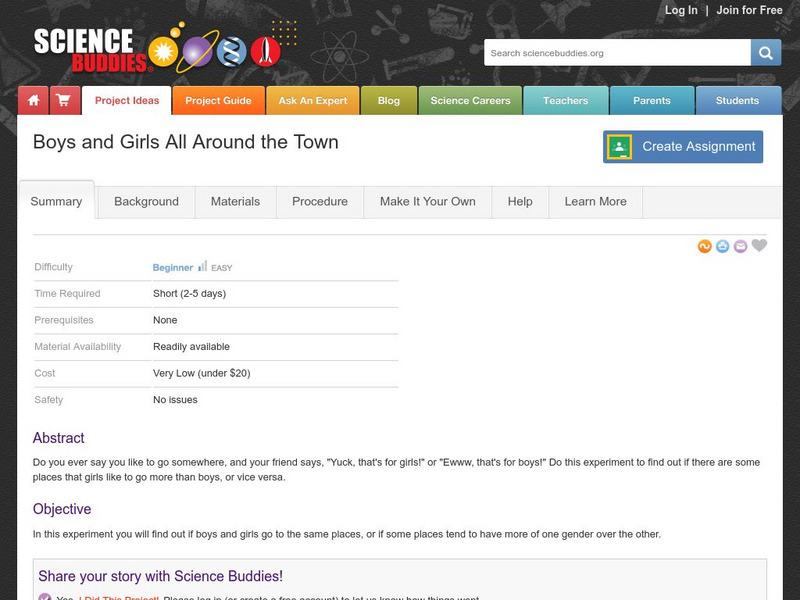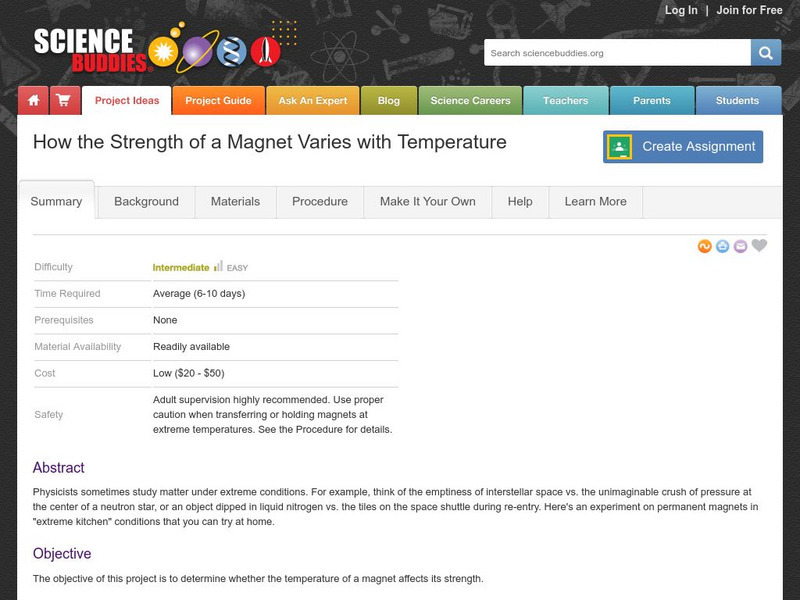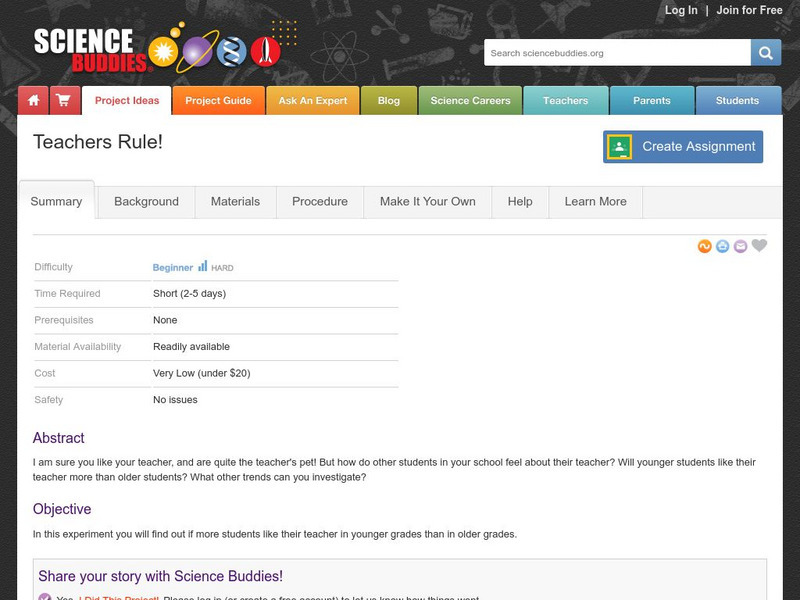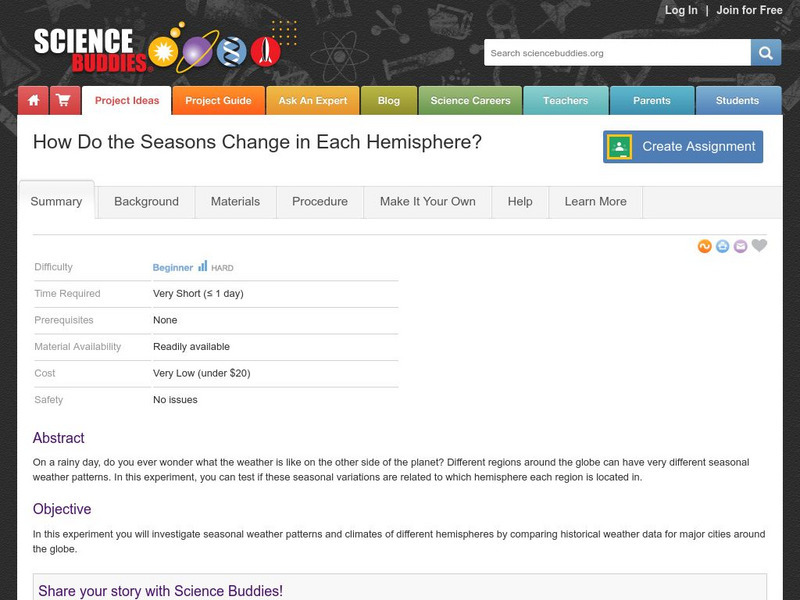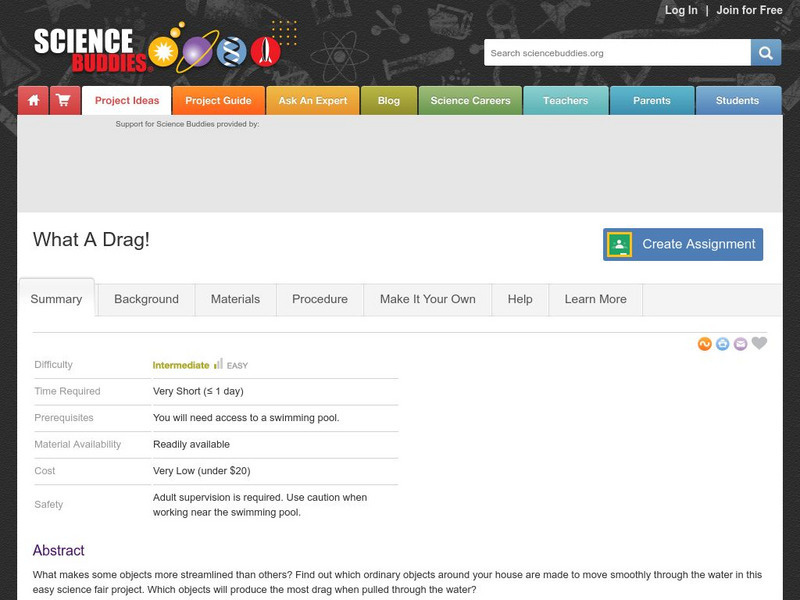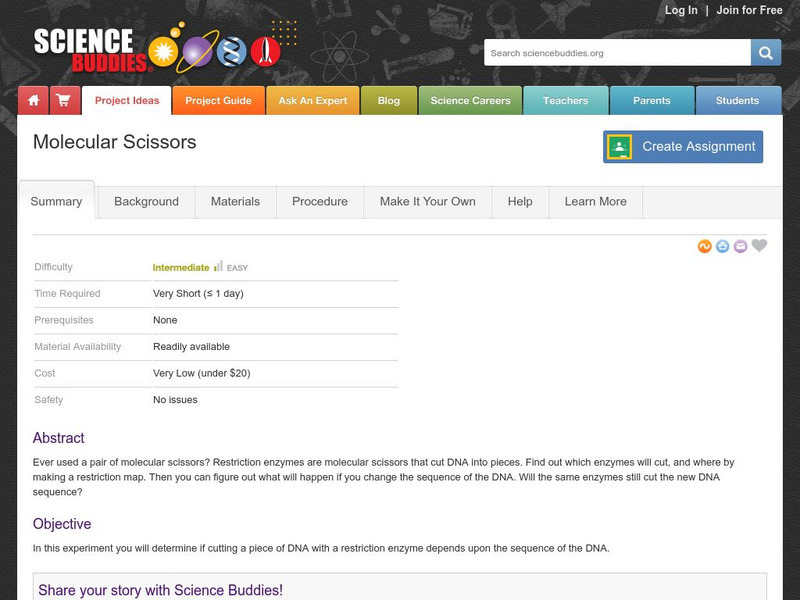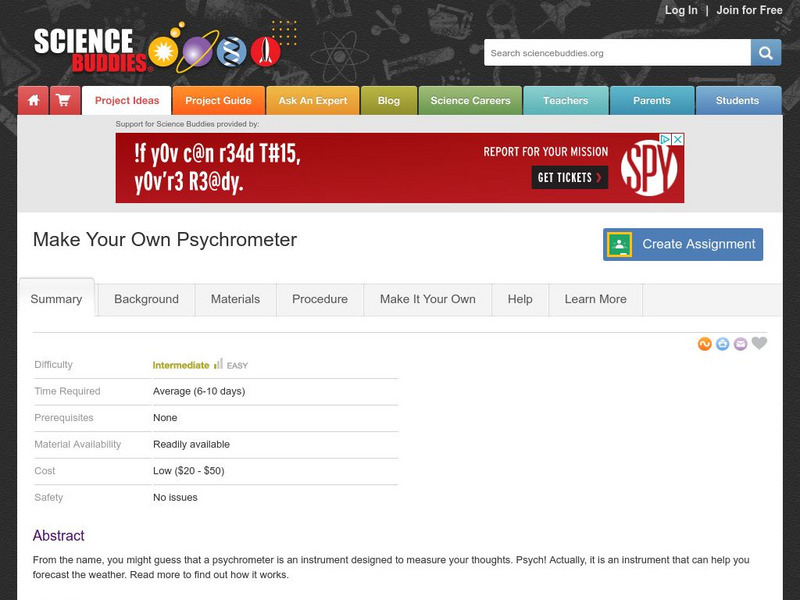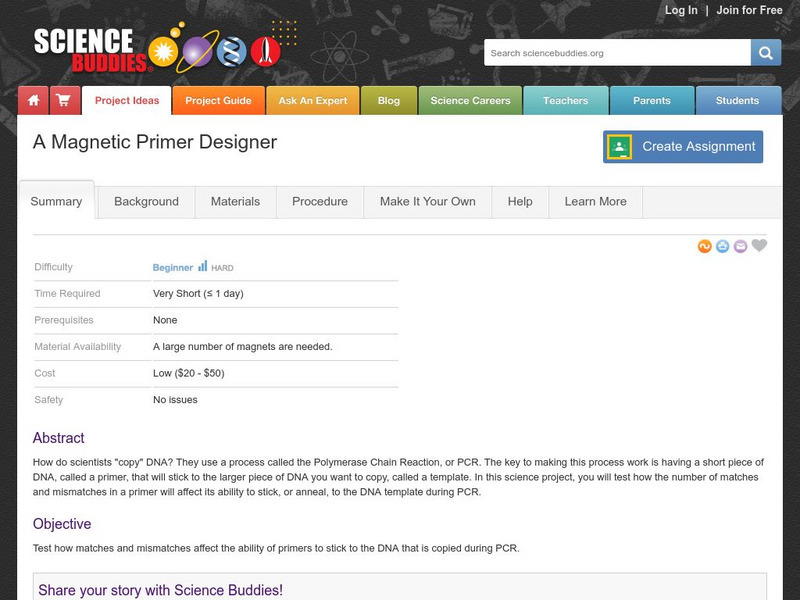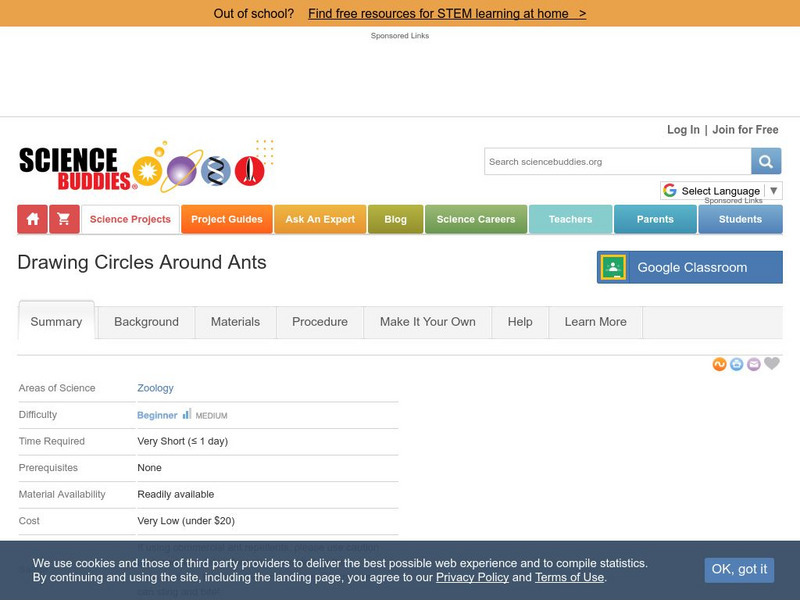Science Buddies
Science Buddies: How Well Do Disinfectants Work?
Germs are everywhere. We try and clean our home with disinfectants, but do we really get rid of all the germs? Find out with this "hands-on" experiment.
Science Buddies
Science Buddies: Can Copper Foil Snails?
If you have a garden, you probably know about snails (or their shell-less relatives, slugs). You may even be looking for a good way to keep them from getting into your garden and eating up the results of all your hard work. Here's a...
Science Buddies
Science Buddies: Boys and Girls All Around the Town
In this experiment you will find out if boys and girls go to the same places, or if some places tend to have more of one gender over the other.
Science Buddies
Science Buddies: Do the Eyes Have It?
Some people have a photographic memory and can memorize anything they see almost instantly. Other people can remember almost anything they hear. Try this experiment to see which type of memory you have.
Science Buddies
Science Buddies: Testing Behavioral Incentives
Research has shown that positive reinforcement is an effective means of influencing behavior. This experiment looks further to determine which type of reinforcement-praise or reward-is more effective with young children. The objective of...
Science Buddies
Science Buddies: How the Strength of a Magnet Varies With Temperature
Physicists sometimes study matter under extreme conditions. For example, think of the emptiness of interstellar space vs. the unimaginable crush of pressure at the center of a neutron star, or an object dipped in liquid nitrogen vs. the...
Science Buddies
Science Buddies: Teachers Rule!
Most students like their teachers. However, they may not always say so. Peer pressure may keep a student from expressing how they really feel. In this experiment you will find out if more students like their teacher in younger grades...
Science Buddies
Science Buddies: What Duration of Ultraviolet Exposure Kills Bacteria?
Ultraviolet light can damage DNA molecules. If a cell's DNA repair mechanisms can't keep up with the damage, mutations are the result. As harmful mutations accumulate, the cell eventually dies. How much ultraviolet light is too much for...
Science Buddies
Science Buddies: How Do the Seasons Change in Each Hemisphere?
On a rainy day, do you ever wonder what the weather is like on the other side of the planet? Different regions around the globe can have very different seasonal weather patterns. In this experiment, you can test if these seasonal...
Science Buddies
Science Buddies: How Does a Wind Meter Work?
On a windy day it is hard to keep your hat on. The power of the wind can even be strong enough to power large wind turbines to make electricity. In this experiment, find out how you can make your own instrument to measure the speed and...
Science Buddies
Science Buddies: How Many Numbers Can You Remember?
Most people don't even remember phone numbers anymore, and instead program them into their phones. There is a limit to the number of numbers, or digits, that most people can remember. Try this experiment to test your digit span, the...
Science Buddies
Science Buddies: Measuring Height or Distances With a Camera
If you know or calculate the field of view for your camera, you can use it to measure distances and the height of almost anything. It's all a matter of basic trigonometry.
Science Buddies
Science Buddies: What a Drag!
What makes some objects more streamlined than others? Find out which ordinary objects around your house are made to move smoothly through the water in this easy experiment. Which objects will produce the most drag when pulled through the...
Science Buddies
Science Buddies: Molecular Scissors
Ever used a pair of molecular scissors? Restriction enzymes are molecular scissors that cut DNA into pieces. Find out which enzymes will cut, and where by making a restriction map. Then you can figure out what will happen if you change...
Science Buddies
Science Buddies: Only if They Think They Can Get Away With It?
How many times have you noticed someone who looks perfectly healthy using a parking space reserved for the handicapped at a busy shopping center? If this behavior gets you steamed, you might be interested in studying how to discourage...
Science Buddies
Science Buddies: Make Your Own Psychrometer
From the name, you might guess that a psychrometer is an instrument designed to measure your thoughts. Actually, it is an instrument that can help you forecast the weather. Read more to find out how it works.
Science Buddies
Science Buddies: Gears Go Round!
Music boxes, bicycles, and clocks all have one thing in common: GEARS. You might say that gears make the world turn, since they are in so many mechanical instruments. How do they work and how do you know which gears to use? Find out in...
Science Buddies
Science Buddies: Rubber Bands for Energy
If you've ever been shot with a rubber band then you know it has energy in it, enough energy to smack you in the arm and cause a sting. How can the energy of a rubber band be put to work? In this experiment you will find out how the...
Science Buddies
Science Buddies: Which Simple Machines Do I Use the Most?
When you think of a machine, you probably think of computers or robots. Try this experiment to see how simple machines are used everyday around your house.
Science Buddies
Science Buddies: Do It Yourself Dna
All living things have DNA inside their cells. In this experiment you can make your own DNA extraction kit from household chemicals and use it to extract DNA from strawberries.
Science Buddies
Science Buddies: What Makes a Dna Fingerprint Unique?
Do you like solving mysteries? In this experiment, you can find out how a DNA fingerprint can help you figure out whodunit. The answer might just be in the "sequence" of events.
Science Buddies
Science Buddies: A Magnetic Primer Designer
How do scientists "copy" DNA? They use a process called the Polymerase Chain Reaction, or PCR. The key to making this process work is having a primer that will stick to the piece of DNA you want to copy, called a template. In this...
Science Buddies
Science Buddies: What's the Point of Boiling?
You know that water can exist in three separate phases: solid (ice), liquid (water), and vapor (steam). To change from one phase to another, you simply add (or remove) heat. When water boils, what happens to molecules (for example sugar...
Science Buddies
Science Buddies: Drawing Circles Around Ants
Do ants sometimes ruin your picnic? There are some chemical ant repellents you can spray to keep them away, but who wants to spray poison all over their food? In this experiment you can investigate some less toxic solutions that may be...




